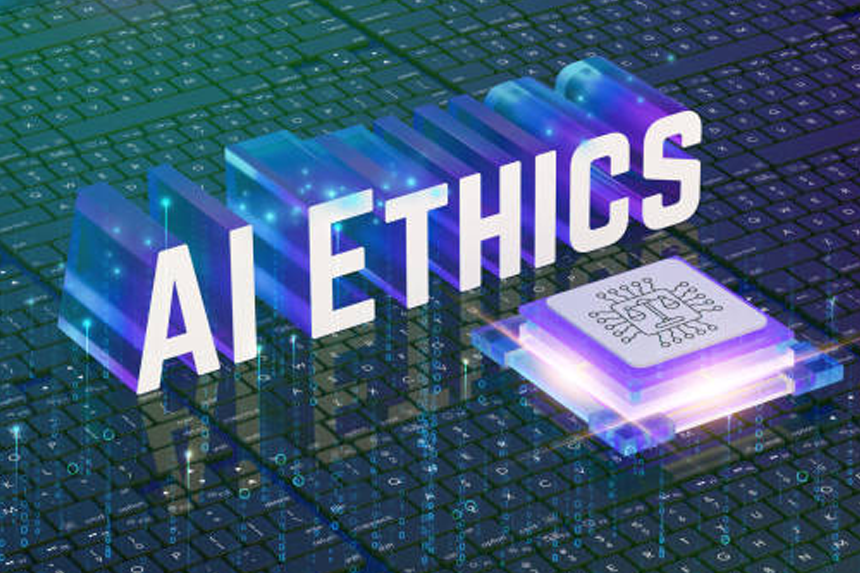Alphabet, Google’s parent firm, has just changed its policies on artificial intelligence (AI) usage, therefore deviating from its past position. The new posture does not ensure that artificial intelligence would never be applied for possibly negative uses like weapon development and surveillance instrument creation. This change captures a larger discussion on artificial intelligence ethics, especially with relation to security and national interests.
The corporation has decided to replace more complicated and strategic factors with “likely to cause harm” in this revised framework, therefore eliminating a phrase that earlier ruled out. The new path has spurred discussions on the moral application of artificial intelligence, the place of business interests, and the harmony between world security and scientific development.
Why Is Alphabet Reversing Its AI Ethical Approach?
Alphabet’s most recent change in AI ethics policy reflects its awareness of the fast developing character of artificial intelligence. In a blog post, James Manyika, Google’s senior vice president, and Demis Hassabis, the leader of Google DeepMind, detailed the logic for the shift.
“Everyday, billions of people rely on artificial intelligence. AI has evolved into a general-purpose technology and a platform used by innumerable companies and people to create applications. From a lab’s niche study area, it has evolved into a technology that is becoming as ubiquitous as mobile phones and the internet itself,” they said.
Alphabet has decided to change its original 2018 values in view as insufficient to control the scope and complexity of present artificial intelligence technologies given AI’s ubiquity. Manyika and Hassabis underlined the need of companies and democratic governments cooperating on AI projects aiming at “supporting national security.”
Should national security uses for AI be pursued?
The choice to abandon the will to refrain from using artificial intelligence technologies that would “probably cause harm” has generated debates on the consequences for national security. Alphabet’s revised posture captures the company’s conviction that “democracies should lead in AI development, guided by core values like freedom, equality, and respect for human rights.”
Mr. Manyika and Mr. Hassabis maintained that, given its great power, artificial intelligence has to be in line with the ideals of nations defending fundamental rights. “We believe that companies, governments, and organizations sharing these values should work together to create artificial intelligence protecting people, promotes global development, and supports national security,” they said.
But this change begs concerns about the possible hazards involved, particularly in terms of how artificial intelligence is applied within surveillance technology and on the battlefield. These questions relate to the more general problem of artificial intelligence ethics, which develops along with technology.
How Does This Affect Alphabet's Commercial Approach?
Alphabet’s changed AI Ethics policies coincide with a challenging financial year marked by lower-than-expected results. Alphabet is doubling in on artificial intelligence as a potential expansion engine despite these outcomes. This year, the corporation revealed intentions to commit an astounding $75 billion on artificial intelligence projects—a 29% rise from Wall Street projections.
Most of this money will be used to develop the infrastructure required to run artificial intelligence technology, perform research on AI, and include AI into useful applications like improving Google search capability. One prominent example is the release of Gemini, Alphabet’s AI-powered platform, which is now on Google Pixel phones and shows at the top of Google search results.
Does this go against Google's founding ethics?
Alphabet’s change departs from the company’s initial values. Sergey Brin and Larry Page, the founders of Google, notably followed the mantra “don’t be evil,” which shaped the early running of the business. But Google adopted a more neutral motto: “Do the right thing” when it was renamed Alphabet Inc. in 2015.
Some Google staff members have expressed worries despite the leadership transition and changing attitude to artificial intelligence. When the corporation decided not to extend a contract for AI work with the U.S. Pentagon back in 2018, it encountered notable internal demonstrations. Workers worried that “Project Maven” was a stepping stone towards military uses including perhaps fatal ones using artificial intelligence. This internal conflict also emphasizes the continuous conversations in the business on artificial intelligence ethics.
What Consequences Regarding AI Governance?
The updated AI Ethics guidelines of Alphabet represent a turning point in the continuous discussion on artificial intelligence management. Although the business supports its position by stressing national security and global cooperation, detractors remain wary of the dangers artificial intelligence presents.
The more general issue is: how should artificial intelligence be controlled as it keeps changing our planet and to what degree should economic interests affect its evolution? The changing story about Alphabet’s new AI rules suggests that this dialogue is only starting.








